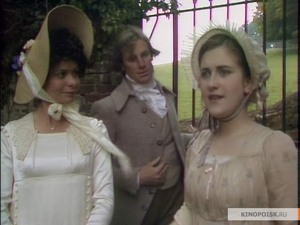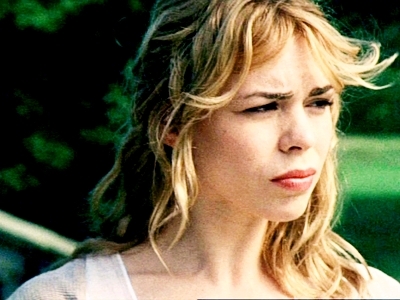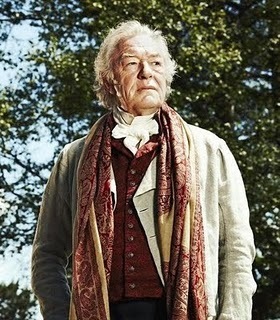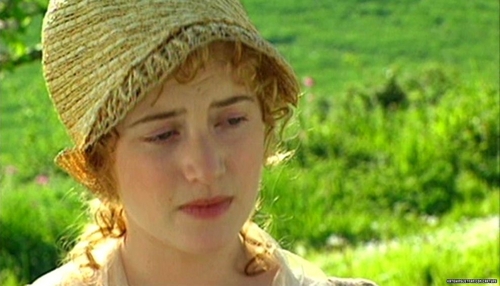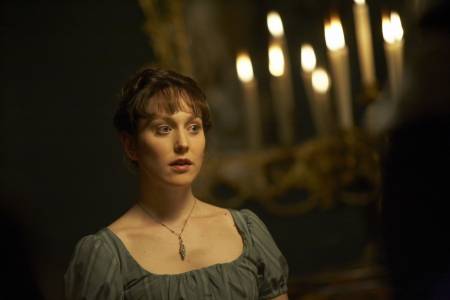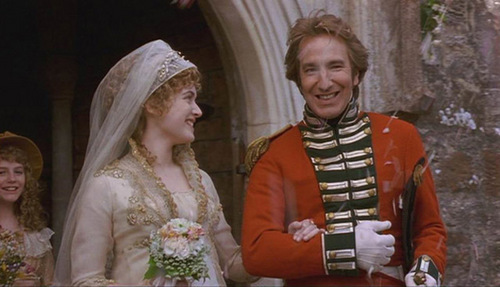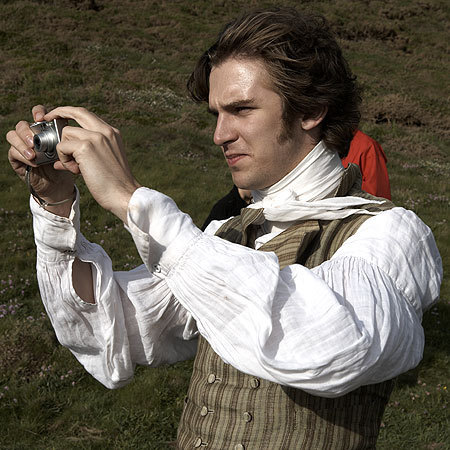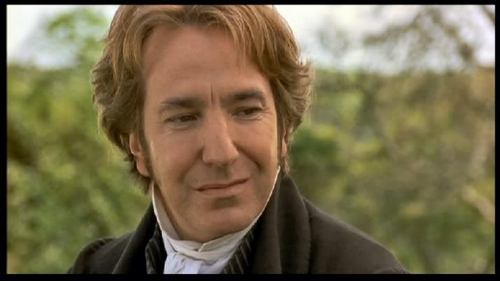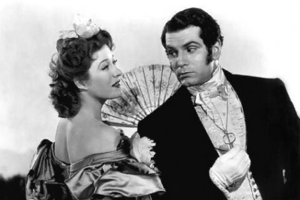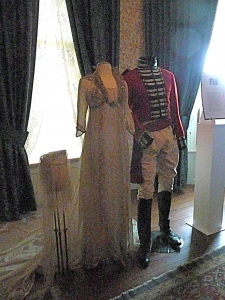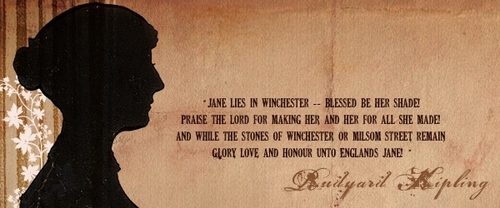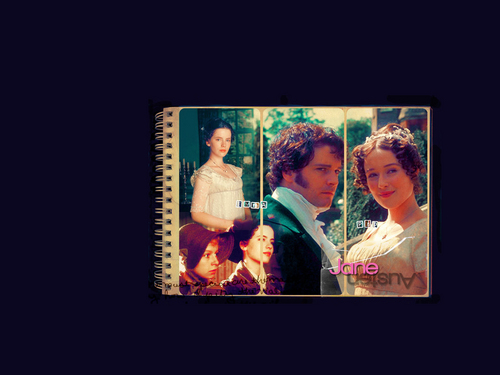"MANSFIELD PARK" (1983) Review
Long before Patricia Rozema wrote and directed her 1999 adaptation of "Mansfield Park", Jane Austen’s 1814 novel, the BBC aired its own adaptation some sixteen years earlier. This one came in the form of a six-part miniseries and is regarded par many Austen fans as the definitive screen version of the novel.
"MANSFIELD PARK" told the story of Fanny Price, the oldest daughter of a former Royal Navy officer, who is sent par her parents to live with her wealthy aunt and uncle-in-law, Sir Thomas and Lady Bertram, at their estate called Mansfield Park, during the early 19th century. Viewed as socially inferior par her new family, Fanny is treated as half-relative/half-servant par the Bertrams. Only Edmund, the family’s seconde son, treats her with great kindness and love. Because of Edmund’s behavior, Fanny finds herself in l’amour with him par the age of eighteen. But her life and the Bertrams’ lives soon encounter a force of nature in the arrival of Henry and Mary Crawford, a pair of vivacious siblings that are related to the local vicar’s wife. Henry ends up stirring excitement and romantic interest within the breasts of the two Bertram sisters – Maria and Julia. And much to Fanny’s dismay, Edmund forms a romantic attachment to the alluring Mary.
In compare to the 1999 Patricia Rozema version and the ITV 2007 movies, this 1983 miniseries is a plus faithful adaptation of Austen’s novel. Considering its six episodes, I do not find this surprising. Literary fans tend to be plus impressed par cinematic adaptations that are very faithful to its source. However, "MANSFIELD PARK" is not a completely faithful adaptation. Screenwriter Ken Taylor completely ignored Fanny’s questions regarding Sir Thomas’ role as a slaveowner with an estate in Antigua. Whereas Austen’s novel and the 2007 movie briefly touched upon the subject, writer/director Patricia Rozema literally confronted it. Only the miniseries ignored the topic, altogether. Judging from the fans’ reaction to this deviation from Austen’s novel, I suspect that many of them are willing to pretend that the subject of slavery was never broached in the miniseries.
Did I enjoy "MANSFIELD PARK"? Well . . . the miniseries had its moments. It allowed me to become plus aware of the plot details in Austen’s 1814 novel than the other adaptations did. I enjoyed the scene featuring the Bertrams’ introduction to the Crawford siblings. I enjoyed the ball held in Fanny’s honor in Episode Four. It struck me as very elegant and entertaining. I also enjoyed the constant flirtation and verbal duels between Edmund and Mary, despite my dislike of the former character. And much to my surprise, I really enjoyed the sequence featuring Fanny’s visit to her family in Portsmouth. For once, the miniseries’ pacing seemed well paced and I enjoyed the details and production designs in the setting for this sequence. One of the actors portraying Fanny’s younger brothers turned out to be a young Jonny Lee Miller, who later portrayed Edmund in the 1999 production.
But the best aspect of "MANSFIELD PARK" turned out to be a handful of first-rate performances and Ian Adley’s costume designs. I usually do not harbor much of a high opinion of the costumes designs seen in other Jane Austen’s adaptations from the 1970s and 80s. But I cannot deny that I found Adley’s costumes not only colorful, but very elegant. I am not surprised that he earned a BAFTA TV Award nomination for Best Costume Design.
As I had stated earlier, I was also impressed par a handful of performances featured in the miniseries. One came from veteran actress Anna Massey, who superbly portrayed one of Fanny Price’s aunts, the noxious Mrs. Norris. Depended upon her sister and brother-in-law for their support, Massey’s Mrs. Norris walked a fine line between toadying behavior toward Sir Thomas and Lady Bertram and her malicious tyranny over Fanny. Samantha Bond gave a subtle and complex portrayal of the oldest Bertram daughter, Maria. Bond conveyed not only the shallow and selfish aspects of Maria’s personality, but also the dilemma that her willingness to become the wife of the disappointing Mr. Rushworth put her in. I also found myself impressed par Bernard Hepton’s performance as Sir Thomas Bertarm, owner of Mansfield Park and patriarch of the Bertram family. Hepton’s Sir Thomas came off as superficially generous, intelligent and morally absolute. He seemed every inch of the ideal English landowner and gentleman. Yet, Hepton also conveyed the corruption that lurked underneath Sir Thomas’ façade – namely the man who seemed plus concern with the financial suitability of his children’s spouses than any emotional regard. Hepton also revealed with great subtlety, the baronet’s egomania and tyranny in scenes that featured the character’s efforts to coerce Fanny into accepting Henry Crawford’s marriage proposal.
I will be brutally honest. I have never been a fan of the Edmund Bertram character. Despite his kindness to Fanny and occasional wit, he strikes me as a self-righteous and very hypocritical man. Whenever I think of that scene in which Edmund rejected Mary Crawford, it still makes my blood boil. But his characterization still worked, due to Nicholas Farrell’s performance. He really did an excellent job in conveying all aspects of Edmund’s personality, both the good and the bad. Despite my negative feelings regarding Edmund’s personality, Farrell made him seem very interesting. But "MANSFIELD PARK" would have never been bearable to me without Jackie Smith-Wood’s sparkling portrayal of one of Jane Austen’s most memorable characters, Mary Crawford. Like Fanny Price, many fans have either loved ou disliked this character. Count me as among the former. I absolutely adored Mary – especially in the hands of the talented Ms. Smith-Wood. With great skill, the actress conveyed all aspects of Mary’s personality – her barbed sense of humor, dislike of the clergy, her talent for manipulation, her moral ambiguity, her charm, her wit, her great warmth and generosity. I suspect that the main reason I like Mary so much is that as an early 21st century woman, I find it easy to relate to her way of thinking. Smith-Wood managed to convey the modern sensibilities of Mary’s personality, while still portraying the character as a woman of the early 19th century.
Unfortunately, the bad tends to go hand-in-hand with the good in many movie and télévision productions. And there are aspects of "MANSFIELD PARK" that left a bad taste in my mouth – including a few performances. One performance I did not particularly care for was Angela Pleasence’s portrayal of Fanny’s other aunt, the languid Lady Bertram. I am aware that Ms. Pleasence possesses a rather high voice. But I noticed that she had exaggerated it for her portrayal of the childish and self-involved Lady Bertram. I wish she had not done this, for I found this exaggeration very annoying. And now that I think about it, I realized that Pleasence’s Lady Bertram hardly did a thing in the miniseries that allowed the plot to déplacer forward, except use her selfishness to protect Fanny from Mrs. Norris’ spite . . . sometimes. But I cannot blame the actress. Lady Bertram is a role that has never impressed me. I have yet to find an actress who has ever done anything with the role. I truly believe that producer Betty Billingale and director David Giles selected the wrong actor to portray the charming Lothario, Henry Crawford. Robert Burbage seemed like an affable presence and he wore the costumes designed par Ian Adley very well. But his portrayal of Henry seemed wanting. I will go further and state that I found his performance by-the numbers and his jouer la comédie skills rather mechanical. Burbage’s Henry did not strike me as the attractive and sexy man who managed to flutter the hearts of the Bertram sisters. Instead, I felt as if I had been watching an earnest schoolboy trying . . . and failing to behave like a rakish seducer.
Finally, I come to Sylvestra Le Touzel’s performance as the miniseries’ leading character, Fanny Price. I am not a fan of the Fanny Price character. Yes, I admire her willingness to stick to her conviction in rejecting Henry Crawford’s marriage proposal in the face of Sir Thomas’ attempts to coerce her. But Fanny also strikes me as being priggish, passive-aggressive, illusional (to a certain extent) and worst of all, hypocritical. I also dislike Edmund Bertram, but at least I was impressed par Nicholas Farrell’s portrayal of the character. On the other hand, I WAS NOT impressed par Le Touzel’s performance. I realize that she had portrayed a socially awkward and introverted character. But I have seen other actors and actrices portray similar characters with a lot plus skill. Le Touzel’s performance struck me as wooden, mannered and at times, slightly hammy. Hell, she made Burbage’s performance seem positively fluid. Le Touzel eventually became a first-rate actress. I saw her very funny performance in 2007’s "NORTHANGER ABBEY". But I wish that Billingale and Giles had cast someone with a lot plus skill to portray Fanny, twenty-eight years ago.
I find it odd that screenwriter Kenneth Taylor took it upon himself to be as faithful as possible to Austen’s novel, with his deletion of Sir Thomas’ role as a slaveowner being the only exception. However, he had failed to change some aspects of the novel that I consider to be very flawed. Taylor never allowed Fanny and Edmund to become self-aware of their personal failings. Edmund managed to self-flagellate himself for becoming emotionally involved with Mary. But I do not consider that much of a failing. Because of the pair’s failure to become self-aware of their failings, I believe they lacked any real character development. Taylor’s script could have assumed a third voice and criticized ou mocked Fanny and Edmund’s lack of development. But it did not. The sequence featuring the "Lover’s Vows" play dragged most of Episode Three. par the time Sir Thomas had returned to Mansfield Park, I nearly fell asleep, thanks to the episode’s slow pacing. In fact, Giles and Taylor’s efforts to make "MANSFIELD PARK" faithful to the novel nearly grounded the miniseries to a halt on several occasions, almost making the entire miniseries rather dull.
plus than anything, I had a problem with the miniseries’ finale. One, I never understood Edmund’s decision to reject Mary Crawford as his fiancée. Although Mary had condemned her brother and Maria Bertram Rushworth’s affair and elopement as folly, she had a plan to save the honors of both the Bertram and Crawford families. She suggested that they convince Henry and Maria to marry following the latter’s divorce from Mr. Rushworth; and have both families stand behind the couple to save face. This plan struck me as very similar to Fitzwilliam Darcy’s plan regarding Lydia Bennet and George Wickham in "Pride and Prejudice". Why did Austen condone Mr. Darcy’s actions regarding Lydia and Wickham in one novel and condemn Mary Crawford for harboring similar plans in this story? Did Taylor, Giles ou Willingale even notice the similarities between Mr. Darcy’s actions and Mary’s plans and see the hypocrisy? Apparently not. My last problem centered on Fanny and Edmund’s wedding in the final episode. How on earth did this happen? The miniseries made Fanny’s romantic feelings for Edmund perfectly clear. Yet, Edmund never displayed any romantic regard for Fanny, merely familial love. Even when revealing the end of his relationship with Mary to Fanny, he still expressed l’amour for his former fiancée. But the suivant scene jumped to Fanny and Edmund’s wedding, without any explanation ou revelation of their courtship. At least Patricia Rozema’s 1999 movie conveyed Edmund’s burgeoning romantic feelings for Fanny, before his final rejection of Mary. Giles and Taylor failed to the same in this miniseries.
I might as well say it. I will never harbor a high regard for "MANSFIELD PARK" . . . at least this version. Although its faithfulness to Jane Austen’s 1814 novel revealed the story in greater detail than the 1999 and 2007 movies, I believe there were scenes in which it should have been less faithful in order to overcome some of the novel’s shortcomings. The miniseries can boast a few outstanding performances from the likes of Anna Massey, Nicholas Farrell and Jackie Smith-Wood. But it was hampered par other performances, especially the wooden jouer la comédie par lead actress, Sylvestra Le Touzel. In the end, "MANSFIELD PARK" proved to be a mixed bag for me.
Long before Patricia Rozema wrote and directed her 1999 adaptation of "Mansfield Park", Jane Austen’s 1814 novel, the BBC aired its own adaptation some sixteen years earlier. This one came in the form of a six-part miniseries and is regarded par many Austen fans as the definitive screen version of the novel.
"MANSFIELD PARK" told the story of Fanny Price, the oldest daughter of a former Royal Navy officer, who is sent par her parents to live with her wealthy aunt and uncle-in-law, Sir Thomas and Lady Bertram, at their estate called Mansfield Park, during the early 19th century. Viewed as socially inferior par her new family, Fanny is treated as half-relative/half-servant par the Bertrams. Only Edmund, the family’s seconde son, treats her with great kindness and love. Because of Edmund’s behavior, Fanny finds herself in l’amour with him par the age of eighteen. But her life and the Bertrams’ lives soon encounter a force of nature in the arrival of Henry and Mary Crawford, a pair of vivacious siblings that are related to the local vicar’s wife. Henry ends up stirring excitement and romantic interest within the breasts of the two Bertram sisters – Maria and Julia. And much to Fanny’s dismay, Edmund forms a romantic attachment to the alluring Mary.
In compare to the 1999 Patricia Rozema version and the ITV 2007 movies, this 1983 miniseries is a plus faithful adaptation of Austen’s novel. Considering its six episodes, I do not find this surprising. Literary fans tend to be plus impressed par cinematic adaptations that are very faithful to its source. However, "MANSFIELD PARK" is not a completely faithful adaptation. Screenwriter Ken Taylor completely ignored Fanny’s questions regarding Sir Thomas’ role as a slaveowner with an estate in Antigua. Whereas Austen’s novel and the 2007 movie briefly touched upon the subject, writer/director Patricia Rozema literally confronted it. Only the miniseries ignored the topic, altogether. Judging from the fans’ reaction to this deviation from Austen’s novel, I suspect that many of them are willing to pretend that the subject of slavery was never broached in the miniseries.
Did I enjoy "MANSFIELD PARK"? Well . . . the miniseries had its moments. It allowed me to become plus aware of the plot details in Austen’s 1814 novel than the other adaptations did. I enjoyed the scene featuring the Bertrams’ introduction to the Crawford siblings. I enjoyed the ball held in Fanny’s honor in Episode Four. It struck me as very elegant and entertaining. I also enjoyed the constant flirtation and verbal duels between Edmund and Mary, despite my dislike of the former character. And much to my surprise, I really enjoyed the sequence featuring Fanny’s visit to her family in Portsmouth. For once, the miniseries’ pacing seemed well paced and I enjoyed the details and production designs in the setting for this sequence. One of the actors portraying Fanny’s younger brothers turned out to be a young Jonny Lee Miller, who later portrayed Edmund in the 1999 production.
But the best aspect of "MANSFIELD PARK" turned out to be a handful of first-rate performances and Ian Adley’s costume designs. I usually do not harbor much of a high opinion of the costumes designs seen in other Jane Austen’s adaptations from the 1970s and 80s. But I cannot deny that I found Adley’s costumes not only colorful, but very elegant. I am not surprised that he earned a BAFTA TV Award nomination for Best Costume Design.
As I had stated earlier, I was also impressed par a handful of performances featured in the miniseries. One came from veteran actress Anna Massey, who superbly portrayed one of Fanny Price’s aunts, the noxious Mrs. Norris. Depended upon her sister and brother-in-law for their support, Massey’s Mrs. Norris walked a fine line between toadying behavior toward Sir Thomas and Lady Bertram and her malicious tyranny over Fanny. Samantha Bond gave a subtle and complex portrayal of the oldest Bertram daughter, Maria. Bond conveyed not only the shallow and selfish aspects of Maria’s personality, but also the dilemma that her willingness to become the wife of the disappointing Mr. Rushworth put her in. I also found myself impressed par Bernard Hepton’s performance as Sir Thomas Bertarm, owner of Mansfield Park and patriarch of the Bertram family. Hepton’s Sir Thomas came off as superficially generous, intelligent and morally absolute. He seemed every inch of the ideal English landowner and gentleman. Yet, Hepton also conveyed the corruption that lurked underneath Sir Thomas’ façade – namely the man who seemed plus concern with the financial suitability of his children’s spouses than any emotional regard. Hepton also revealed with great subtlety, the baronet’s egomania and tyranny in scenes that featured the character’s efforts to coerce Fanny into accepting Henry Crawford’s marriage proposal.
I will be brutally honest. I have never been a fan of the Edmund Bertram character. Despite his kindness to Fanny and occasional wit, he strikes me as a self-righteous and very hypocritical man. Whenever I think of that scene in which Edmund rejected Mary Crawford, it still makes my blood boil. But his characterization still worked, due to Nicholas Farrell’s performance. He really did an excellent job in conveying all aspects of Edmund’s personality, both the good and the bad. Despite my negative feelings regarding Edmund’s personality, Farrell made him seem very interesting. But "MANSFIELD PARK" would have never been bearable to me without Jackie Smith-Wood’s sparkling portrayal of one of Jane Austen’s most memorable characters, Mary Crawford. Like Fanny Price, many fans have either loved ou disliked this character. Count me as among the former. I absolutely adored Mary – especially in the hands of the talented Ms. Smith-Wood. With great skill, the actress conveyed all aspects of Mary’s personality – her barbed sense of humor, dislike of the clergy, her talent for manipulation, her moral ambiguity, her charm, her wit, her great warmth and generosity. I suspect that the main reason I like Mary so much is that as an early 21st century woman, I find it easy to relate to her way of thinking. Smith-Wood managed to convey the modern sensibilities of Mary’s personality, while still portraying the character as a woman of the early 19th century.
Unfortunately, the bad tends to go hand-in-hand with the good in many movie and télévision productions. And there are aspects of "MANSFIELD PARK" that left a bad taste in my mouth – including a few performances. One performance I did not particularly care for was Angela Pleasence’s portrayal of Fanny’s other aunt, the languid Lady Bertram. I am aware that Ms. Pleasence possesses a rather high voice. But I noticed that she had exaggerated it for her portrayal of the childish and self-involved Lady Bertram. I wish she had not done this, for I found this exaggeration very annoying. And now that I think about it, I realized that Pleasence’s Lady Bertram hardly did a thing in the miniseries that allowed the plot to déplacer forward, except use her selfishness to protect Fanny from Mrs. Norris’ spite . . . sometimes. But I cannot blame the actress. Lady Bertram is a role that has never impressed me. I have yet to find an actress who has ever done anything with the role. I truly believe that producer Betty Billingale and director David Giles selected the wrong actor to portray the charming Lothario, Henry Crawford. Robert Burbage seemed like an affable presence and he wore the costumes designed par Ian Adley very well. But his portrayal of Henry seemed wanting. I will go further and state that I found his performance by-the numbers and his jouer la comédie skills rather mechanical. Burbage’s Henry did not strike me as the attractive and sexy man who managed to flutter the hearts of the Bertram sisters. Instead, I felt as if I had been watching an earnest schoolboy trying . . . and failing to behave like a rakish seducer.
Finally, I come to Sylvestra Le Touzel’s performance as the miniseries’ leading character, Fanny Price. I am not a fan of the Fanny Price character. Yes, I admire her willingness to stick to her conviction in rejecting Henry Crawford’s marriage proposal in the face of Sir Thomas’ attempts to coerce her. But Fanny also strikes me as being priggish, passive-aggressive, illusional (to a certain extent) and worst of all, hypocritical. I also dislike Edmund Bertram, but at least I was impressed par Nicholas Farrell’s portrayal of the character. On the other hand, I WAS NOT impressed par Le Touzel’s performance. I realize that she had portrayed a socially awkward and introverted character. But I have seen other actors and actrices portray similar characters with a lot plus skill. Le Touzel’s performance struck me as wooden, mannered and at times, slightly hammy. Hell, she made Burbage’s performance seem positively fluid. Le Touzel eventually became a first-rate actress. I saw her very funny performance in 2007’s "NORTHANGER ABBEY". But I wish that Billingale and Giles had cast someone with a lot plus skill to portray Fanny, twenty-eight years ago.
I find it odd that screenwriter Kenneth Taylor took it upon himself to be as faithful as possible to Austen’s novel, with his deletion of Sir Thomas’ role as a slaveowner being the only exception. However, he had failed to change some aspects of the novel that I consider to be very flawed. Taylor never allowed Fanny and Edmund to become self-aware of their personal failings. Edmund managed to self-flagellate himself for becoming emotionally involved with Mary. But I do not consider that much of a failing. Because of the pair’s failure to become self-aware of their failings, I believe they lacked any real character development. Taylor’s script could have assumed a third voice and criticized ou mocked Fanny and Edmund’s lack of development. But it did not. The sequence featuring the "Lover’s Vows" play dragged most of Episode Three. par the time Sir Thomas had returned to Mansfield Park, I nearly fell asleep, thanks to the episode’s slow pacing. In fact, Giles and Taylor’s efforts to make "MANSFIELD PARK" faithful to the novel nearly grounded the miniseries to a halt on several occasions, almost making the entire miniseries rather dull.
plus than anything, I had a problem with the miniseries’ finale. One, I never understood Edmund’s decision to reject Mary Crawford as his fiancée. Although Mary had condemned her brother and Maria Bertram Rushworth’s affair and elopement as folly, she had a plan to save the honors of both the Bertram and Crawford families. She suggested that they convince Henry and Maria to marry following the latter’s divorce from Mr. Rushworth; and have both families stand behind the couple to save face. This plan struck me as very similar to Fitzwilliam Darcy’s plan regarding Lydia Bennet and George Wickham in "Pride and Prejudice". Why did Austen condone Mr. Darcy’s actions regarding Lydia and Wickham in one novel and condemn Mary Crawford for harboring similar plans in this story? Did Taylor, Giles ou Willingale even notice the similarities between Mr. Darcy’s actions and Mary’s plans and see the hypocrisy? Apparently not. My last problem centered on Fanny and Edmund’s wedding in the final episode. How on earth did this happen? The miniseries made Fanny’s romantic feelings for Edmund perfectly clear. Yet, Edmund never displayed any romantic regard for Fanny, merely familial love. Even when revealing the end of his relationship with Mary to Fanny, he still expressed l’amour for his former fiancée. But the suivant scene jumped to Fanny and Edmund’s wedding, without any explanation ou revelation of their courtship. At least Patricia Rozema’s 1999 movie conveyed Edmund’s burgeoning romantic feelings for Fanny, before his final rejection of Mary. Giles and Taylor failed to the same in this miniseries.
I might as well say it. I will never harbor a high regard for "MANSFIELD PARK" . . . at least this version. Although its faithfulness to Jane Austen’s 1814 novel revealed the story in greater detail than the 1999 and 2007 movies, I believe there were scenes in which it should have been less faithful in order to overcome some of the novel’s shortcomings. The miniseries can boast a few outstanding performances from the likes of Anna Massey, Nicholas Farrell and Jackie Smith-Wood. But it was hampered par other performances, especially the wooden jouer la comédie par lead actress, Sylvestra Le Touzel. In the end, "MANSFIELD PARK" proved to be a mixed bag for me.


